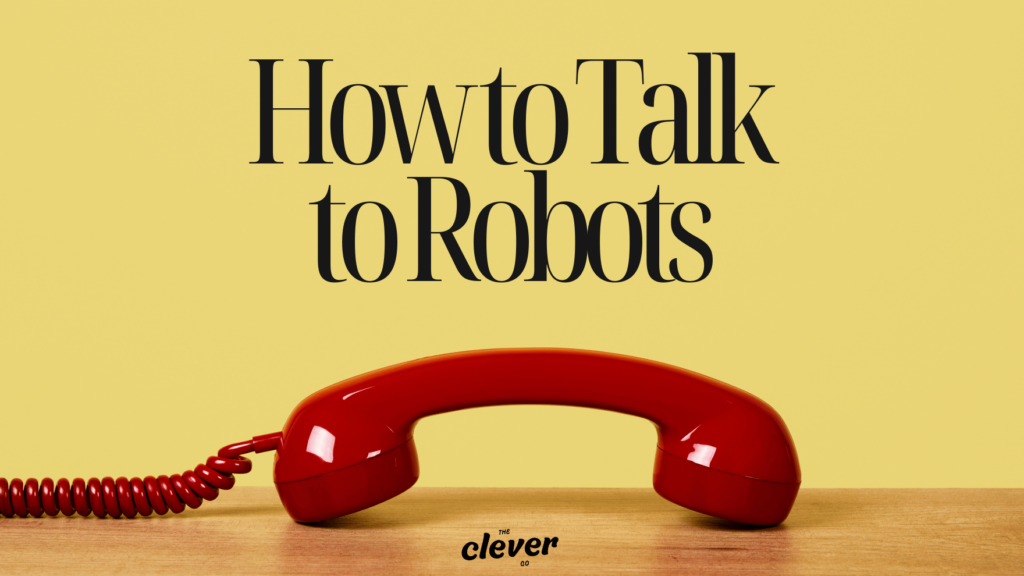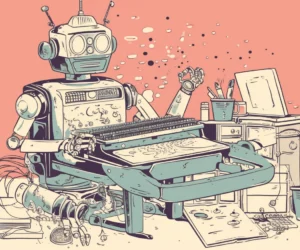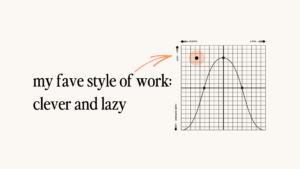The Secret to Scaling Your Startup’s Content Engine with AI
I’ve seen it time and time again: startups struggling to keep up with the relentless demands of content creation. Founders and marketers alike are burning the midnight oil, trying to rearrange a content calendar and swap one freelancer who flaked out on them for another while craft compelling TikTok posts, social media updates, and email campaigns that will cut through the noise and attract their ideal customers (I call this whole wild ride, “making the donuts”, btw).
There’s lots of claims that AI will be the savior to this, but thus far it’s produced lots of AI sludge. With the nonstop drama and news, you’re missing out on the real power of AI to transform your content strategy and streamline their workflows…with authenticity.
That’s where I come in. As a fractional content director specializing in systems and AI integration, my job is to help startups jump on the power of AI to create better content, faster and more efficiently than ever before. Authenticity is a core tenant to all I do, so I’m talking about the machine behind marketing to free up more brain space and time for creativity by humans.
Overcoming the Fear of AI
First, let’s address the elephant in the room: the fear that AI will replace human creatives and creators. I get it. The idea of machines churning out blog posts and social media updates is a little unnerving. But here’s the thing: AI is not a replacement for human creativity; it’s a tool to enhance it.
As the dead internet theory becomes more true, authentic, real content becomes paramount. And I firmly believe you can spend more time creating that with AI helping run the machine in the background.
Real-World Examples of AI-Powered Content Workflows
So, what does this actually look like in practice? Here are a few examples of how I’ve helped startups integrate AI into their content workflows:
Automated project planning
For a content marketing agency, I developed a system that uses GPT-4 to generate comprehensive project plans based on a simple input brief. The AI takes into account the client’s goals, target audience, and content preferences to create a detailed plan complete with timelines, deliverables, and resource allocation. This has reduced the time spent on project planning by over 50%.
AI-powered brainstorming and ideation
I worked with a B2B tech startup to implement an AI-assisted brainstorming workflow. Using tools like Claude and Google Docs, the team can now capture ideas during brainstorming sessions and automatically generate content outlines, research suggestions, and even first drafts. This has not only saved time but also helped the team generate more creative and diverse content ideas.
Repurposing and refreshing existing content
For a popular business podcast, I set up a workflow that automatically transcribes each episode using AI-powered speech recognition. The transcripts are then fed into GPT-4, which identifies key themes, extracts valuable quotes and insights, and generates ideas for repurposing the content into blog posts, social media updates, and even infographics. This has allowed the podcast to get more mileage out of each episode and reach a wider audience across multiple channels.
AI-powered content distribution
I worked with a SaaS startup to build an AI-powered content distribution machine. Using tools like GPT-4, Zapier, and Hootsuite, we created a system that automatically adapts each piece of content for different channels and audiences. For example, when a new blog post is published, the AI generates customized social media posts, email newsletter snippets, and even ad copy tailored to each platform and persona. This has allowed the startup to reach a wider audience and increase engagement across all channels, while saving hours of manual effort.
Intelligent knowledge base surfacing
For a customer support team at a fast-growing tech company, I implemented an AI-powered chatbot that automatically surfaces relevant knowledge base articles based on user queries. Using natural language processing and machine learning, the chatbot analyzes each user’s question and provides the most relevant articles and resources, along with personalized recommendations for next steps. This has reduced the burden on human support agents and empowered customers to find the answers they need quickly and easily, resulting in a 30% reduction in support ticket volume.
AI-generated content calendars for marketing teams: I worked with a startup’s marketing team to develop an AI-powered system for generating their quarterly content calendars. The tool analyzes the company’s marketing goals, target personas, and past content performance to suggest topic ideas, content formats, and distribution channels for each week. The AI-generated calendar also takes into account the team’s bandwidth and resources to ensure the plan is realistic and achievable. This has helped the marketing team stay organized, aligned, and focused on creating content that drives real business results.
Streamlined content brief creation for in-house writers: For a B2B company’s in-house content team, I implemented an AI tool that streamlines their content brief creation process. The marketing manager inputs the target audience, key messages, and desired call-to-action for each piece of content, and the AI generates a detailed brief complete with talking points, research links, and SEO recommendations. This has not only saved the marketing team hours of manual work but also helped ensure all content is aligned with their overarching strategy and brand guidelines.
AI-assisted design briefs for marketing collateral: I worked with a startup’s marketing team to implement an AI tool that helps them generate design briefs for various marketing collateral, such as social media graphics, email headers, and even landing pages. The marketing manager inputs the campaign goals, target audience, and desired visual style, and the AI generates a comprehensive design brief including layout suggestions, color palette recommendations, and even sample copy. This has allowed the marketing team to collaborate more effectively with their design counterparts and ensure all visual assets are on-brand and on-message.
The key is to think systemically and look for opportunities to leverage AI at every stage of the content lifecycle, from planning and creation to distribution and optimization.
Of course, implementing these kinds of AI-powered systems requires a deep understanding of both content strategy and AI technology. That’s where my expertise as a fractional marketing director comes in. By partnering with startups to design and implement customized AI workflows, I help them unlock the full potential of their content while freeing up their human teams to focus on higher-level strategy and creativity.
The 90-Day AI Content Sprint
Weeks 1-2
We audit your existing content workflow and identify opportunities for AI integration. This includes everything from topic ideation to distribution and promotion.
Weeks 3-6
We implement AI-powered content creation workflows, including automated content briefs, AI-assisted writing and editing, and personalized content recommendations.
Weeks 7-10
We focus on distribution and promotion, using AI to optimize your content for search engines, social media, and email marketing. We also set up automated reporting and analytics to track your content performance in real-time.
Weeks 11-12
We fine-tune your AI-powered content engine based on data and insights gathered during the sprint. We also provide training and documentation to ensure your team is fully equipped to maintain and optimize the system going forward.
Throughout the sprint, we’ll also identify opportunities for broader AI-powered automation across your marketing stack. This might include things like chatbots for customer support, predictive lead scoring for sales, or AI-powered ad optimization.
The Future of Content is AI-Empowered
At the end of the day, the goal of all this AI integration is not to replace human content creators, but to empower them. By automating the repetitive, time-consuming tasks that often bog down content creation, we free up human creators to focus on what they do best: telling compelling stories, building authentic relationships, and driving real business results.
As a fractional content director specializing in AI, my role is to be the bridge between the human and the machine. I bring a deep understanding of both content strategy and AI technology, and I use that knowledge to help startups create content that resonates with their audience and drives meaningful growth.
If you’re a startup founder or marketer who’s feeling overwhelmed by the demands of content creation, I invite you to book a call with me. Let’s discuss how we can harness the power of AI to take your content strategy to the next level. Together, we can create a content engine that not only keeps up with the demands of your business, but actually propels it forward.
The future of content is AI-empowered. Will you be leading the charge, or watching from the sidelines?





